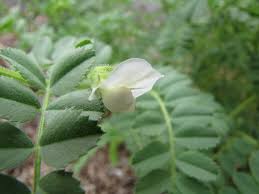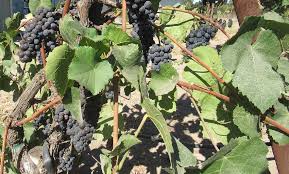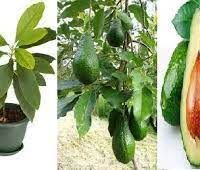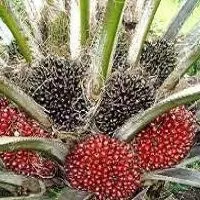Economic Importance, Uses, and By-Products of Watermelon Fruits
Watermelon Fruits is a juicy and refreshing fruit known for its vibrant red flesh and green rind. It belongs to the Cucurbitaceae family, which also includes cucumbers, pumpkins, and squash. Watermelon is botanically classified as Citrullus lanatus.
The fruit is typically large and oblong-shaped, although there are also round varieties available. Its thick, smooth rind is usually green or sometimes striped, depending on the specific variety. The rind provides protection for the inner flesh and helps to maintain the fruit’s moisture.
The inside of a watermelon is characterized by its bright red or sometimes yellowish, sweet, and juicy flesh. The flesh is composed mainly of water, giving watermelon its thirst-quenching and hydrating properties. It is punctuated with small, black seeds or may be seedless, depending on the cultivar. The seedless varieties are typically more popular because they are easier to eat and do not require seed removal.
The flavor of watermelon is subtly sweet and refreshing, with a mild, slightly tangy taste. It is a popular summertime fruit due to its high water content, which helps to keep the body hydrated in hot weather. Watermelon is also low in calories and fat while being a good source of vitamins A and C. It also contains some dietary fiber and antioxidants like lycopene, which gives the fruit its vibrant red color.
Watermelon Fruits can be enjoyed in various ways. It is often eaten fresh, either sliced into wedges or cubed. It is a common ingredient in fruit salads, smoothies, and refreshing beverages. In some cultures, the rind is pickled or used in cooking as well. Watermelon is a versatile fruit that is widely appreciated for its taste, hydrating properties, and nutritional benefits.
Economic Importance, Uses, and By-Products of Watermelon Fruits
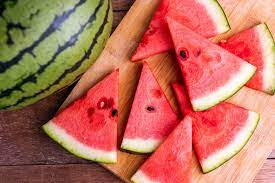
Watermelon fruits have several economic importance and uses across various industries. Here are some of the key ones:
1. Food and Beverage Industry: Watermelon is widely consumed as a refreshing fruit and is a popular ingredient in various food and beverage products. It is used to make fruit salads, smoothies, juices, popsicles, and flavored water. Watermelon is also used in the production of jams, jellies, and preserves.
2. Agricultural Industry: Watermelon cultivation provides a significant source of income for farmers. The fruit is commercially grown in many countries, and its cultivation creates job opportunities for farmers and laborers. Watermelon production contributes to the agricultural economy, both locally and internationally.
3. Export and Trade: Watermelon is a highly traded commodity in the global market. Many countries export watermelon to meet the demand in other regions. This boosts international trade and helps generate foreign exchange earnings for exporting countries. For example, countries like the United States, China, Turkey, and Brazil are major players in watermelon exports.
4. Food Processing Industry: Watermelon is processed into various value-added products, such as juices, syrups, concentrates, and dehydrated watermelon snacks. These processed products have a longer shelf life and are used in the food processing industry as ingredients for different food products.
5. Pharmaceutical and Cosmetics Industries: Watermelon contains several beneficial compounds like vitamins, antioxidants, and amino acids. These compounds are utilized in the pharmaceutical and cosmetics industries. Watermelon extracts and juices are used in the production of supplements, nutritional products, skincare products, and hair care products.
6. Seeds and Oil Extraction: Watermelon seeds are edible and are often consumed as a snack or used in culinary preparations. They can also be pressed to extract oil, which is used for cooking and in the production of cosmetics and skincare products.
7. Animal Feed: Watermelon rinds and leftovers from processing can be used as animal feed, particularly for livestock. Farmers can utilize watermelon byproducts as a cost-effective source of feed, reducing waste and providing nutrition to their animals.
8. Tourism and Hospitality: Watermelon farms and festivals attract tourists, creating opportunities for agritourism. In some regions, watermelon-themed events, such as eating contests, carving competitions, and festivals, generate tourism revenue and support local economies.
9. Beverage Industry: Watermelon juice and watermelon-based beverages have gained popularity in the beverage industry. These products are often consumed as refreshing and hydrating drinks, especially during hot summers. Watermelon juice can be sold as a standalone beverage or used as a base for cocktails and mocktails.
10. Culinary Industry: Watermelon is used in various culinary preparations, especially in salads, salsas, and desserts. It adds a burst of flavor, sweetness, and moisture to dishes. Watermelon can be paired with other fruits, vegetables, and even meats to create unique and delicious recipes.
11. Street Food and Vendors: In many countries, watermelon is sold by street vendors as a ready-to-eat snack. The fruit is sliced into portable chunks or served on sticks, making it a convenient and popular choice for people on the go. Street vendors often rely on watermelon sales to generate income.
12. Event Catering: Watermelon is commonly used in event catering, such as weddings, parties, and picnics. It is served as a refreshing fruit option and can be creatively incorporated into fruit platters, fruit kebabs, or fruit displays.
13. Garden and Landscaping: Watermelon plants are cultivated in home gardens and large-scale landscaping projects. The sprawling vines and vibrant fruits add aesthetic appeal to outdoor spaces. Some gardeners grow watermelons as a hobby or for local community initiatives.
14. Seed Production: Watermelon seeds are harvested and sold as a separate product. They are consumed as a snack, used in baking, and can be roasted and seasoned for added flavor. The seed industry plays a role in producing and distributing watermelon seeds for domestic and international markets.
Read Also : Economic Importance, Uses, and By-Products of Watermelon Tendrils
15. Genetic Research and Breeding: Watermelon Fruits serves as a subject for genetic research and breeding programs. Scientists and breeders work on developing new watermelon varieties with improved traits, such as disease resistance, enhanced flavor, and better shelf life. These advancements contribute to agricultural innovation and yield improvement.
16. Job Creation: The watermelon industry creates employment opportunities beyond farming and harvesting. It involves various stages, including transportation, packaging, processing, marketing, and sales, which provide jobs for a diverse range of individuals in rural and urban areas.
17. Juicing and Blending Businesses: Watermelon is a popular fruit for juicing and blending businesses. Juice bars, smoothie shops, and health-focused cafes often feature watermelon-based beverages on their menus. The demand for fresh, natural juices and smoothies made from watermelon provides business opportunities for entrepreneurs.
18. Food Service Industry: Watermelon is widely used in the food service industry, including restaurants, hotels, and catering companies. It is incorporated into salads, appetizers, main courses, and desserts, adding a refreshing and flavorful element to dishes. Watermelon’s versatility makes it an appealing ingredient for chefs and foodservice professionals.
19. Event Decoration and Displays: Watermelons are utilized as decorative elements in events and celebrations. They are often carved, shaped, or used as part of elaborate displays, adding a visually appealing and thematic touch to occasions such as weddings, parties, and festivals.
20. Watermelon Tourism: In areas known for watermelon production, such as specific regions or countries, watermelon tourism has gained traction. People visit these areas to experience watermelon-related activities, tours, and farm visits, contributing to local economies through tourism spending.
21. Value-Added Products: Watermelon Fruits is processed into various value-added products, expanding its economic impact. Examples include dried watermelon slices, watermelon candies, watermelon-flavored ice creams and sorbets, and watermelon-infused alcoholic beverages. These products cater to different consumer preferences and diversify the market for watermelon.
22. Seedless Varieties: Seedless watermelons have become increasingly popular due to their convenience and ease of consumption. Seedless watermelon varieties are developed through breeding programs, offering consumers a hassle-free eating experience. The demand for seedless watermelons has increased, creating opportunities for seed producers and farmers specializing in these varieties.
23. Job Creation in Processing Facilities: Watermelon processing facilities employ workers for tasks such as sorting, cleaning, cutting, and packaging. These facilities play a crucial role in extending the shelf life of watermelon products and meeting the demand for processed watermelon in various forms.
24. Research and Development: Watermelon research and development contribute to the improvement of cultivation techniques, disease resistance, and overall crop quality. Research initiatives support innovation in the watermelon industry, leading to enhanced productivity and economic growth.
25. Regional and Local Markets: Watermelons are often sold in regional and local markets, creating opportunities for small-scale farmers and local vendors. These markets provide a platform for farmers to directly sell their produce and establish connections with consumers, contributing to the local economy.
These additional examples highlight the broad range of economic importance and uses of watermelon fruits. The fruit’s popularity, versatility, and agricultural significance contribute to economic growth, job creation, and various industries worldwide.
The Products and By-products That Can Be Derived From Watermelon Fruits
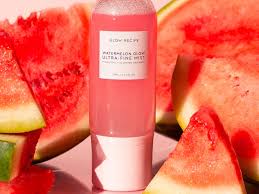
Watermelon is a versatile fruit that can be used to produce various products and by-products. Here are some examples along with explanations of the processes involved:
1. Watermelon juice: Watermelon can be juiced to create a refreshing and hydrating beverage. The process involves extracting the juice by blending or pressing the fruit, then straining to remove any pulp or seeds. Watermelon juice can be enjoyed as is or used as a base for smoothies, cocktails, or other fruit juices.
2. Watermelon rind pickles: The rind of watermelon, which is the firm, white part beneath the green skin, can be used to make pickles. The rind is peeled, cut into desired shapes, and soaked in a brine solution of vinegar, sugar, and spices. The pickles are then left to marinate for a period of time, allowing the flavors to develop. Watermelon rind pickles are commonly served as a condiment or snack.
3. Watermelon sorbet: Watermelon sorbet is a frozen dessert made from the pureed flesh of watermelon, sweetened with sugar or honey, and flavored with lemon juice or other ingredients. The mixture is churned in an ice cream maker to create a smooth and creamy sorbet. It can be enjoyed on its own or used as a topping for other desserts.
4. Watermelon seed oil: Watermelon seeds can be cold-pressed to extract oil. The seeds are first dried and then mechanically pressed to release the oil. Watermelon seed oil is rich in nutrients and has various cosmetic applications. It can be used in skincare products, hair care products, massage oils, and as a cooking oil.
5. Watermelon seed snacks: Watermelon seeds can be roasted or flavored to create nutritious and crunchy snacks. The seeds are removed from the fruit, cleaned, and then roasted with salt or various seasonings. Roasted watermelon seeds are a popular snack in many cultures and are often consumed on their own or added to trail mixes.
6. Watermelon jam: Watermelon jam is a sweet spread made by cooking watermelon flesh with sugar and lemon juice until it thickens to a spreadable consistency. Additional flavors such as vanilla or spices can be added for enhanced taste. Watermelon jam can be enjoyed on toast, pastries, or as a filling for desserts.
Read Also : Economic Importance, Uses, and By-Products of Watermelon Tendrils
7. Watermelon facial mask: Watermelon Fruits can be used in homemade facial masks due to its hydrating and soothing properties. The fruit is pureed or mashed, and ingredients like yogurt, honey, or aloe vera gel are added to create a mask. This mixture is then applied to the face and left on for a specified time before rinsing off. Watermelon facial masks can help moisturize the skin and provide a refreshing sensation.
8. Compost and animal feed: Watermelon scraps, including the rind, can be composted to create nutrient-rich soil. The discarded parts can also be used as animal feed for livestock, such as pigs or chickens, as they contain valuable nutrients.
9. Watermelon wine: Watermelon can be fermented to produce a unique and flavorful wine. The process involves extracting the juice from the fruit and then fermenting it with yeast. The fermentation process converts the sugar in the juice into alcohol. After fermentation, the wine is aged and bottled. Watermelon wine can be enjoyed as a refreshing and fruity alcoholic beverage.
10. Watermelon seed flour: Watermelon seeds can be ground into a fine powder to create watermelon seed flour. This flour can be used as an ingredient in baking recipes, such as bread, muffins, or cookies, to add a nutty flavor and boost nutritional value. Watermelon seed flour is gluten-free and rich in protein, healthy fats, and minerals.
11. Watermelon extract: Watermelon extract is a concentrated form of the fruit’s beneficial compounds. It can be obtained through various extraction methods, such as steam distillation or solvent extraction. Watermelon extract is often used in cosmetics and skincare products for its hydrating, soothing, and antioxidant properties.
12. Watermelon seed tea: Watermelon seeds can be roasted and infused in hot water to create a flavorful and aromatic tea. The roasted seeds are crushed and steeped in boiling water, similar to how traditional tea is prepared. Watermelon seed tea is believed to have various health benefits, including aiding digestion and promoting relaxation.
13. Watermelon seed butter: Watermelon seeds can be ground into a smooth and creamy butter, similar to other nut and seed butters. The seeds are roasted, ground, and blended until they reach a buttery consistency. Watermelon seed butter can be used as a spread, added to smoothies, or incorporated into recipes that call for nut butter.
14. Watermelon seed protein powder: Watermelon seeds can be processed to extract protein-rich powder. The seeds are dried, ground, and sifted to remove any husks or impurities. Watermelon seed protein powder is a plant-based protein source that can be used in protein shakes, smoothies, or as a protein supplement in various recipes.
15. Watermelon fiber supplements: Watermelon fiber can be extracted from the fruit and processed into dietary fiber supplements. These supplements are rich in soluble and insoluble fiber, which can aid in digestion, promote satiety, and support overall gut health.
These additional products and by-products highlight the versatility of watermelon and its various applications in the culinary, cosmetic, and health industries.
Read Also : Water Pollution Affecting Animals


